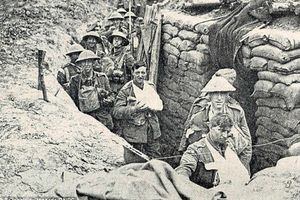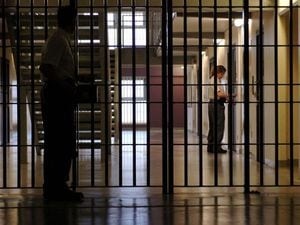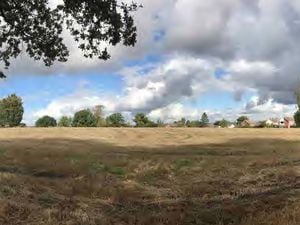Shropshire soldier is a casualty of war – 98 years on
A soldier from Shropshire has finally been recognised as an official casualty of the Great War – 98 years after his death.

It is all thanks to the work of a historian and researcher from Shrewsbury.
Private Harry Heritage Owen, of Oswestry, fought in the conflict but was sent home after falling ill and later discharged from the Army.
He died from double pneumonia, an illness directly linked to his time in the trenches.
There are no known photographs of Harry, but now his name will live on because of the detective work of Philip Smith-Morris.
"Although Harry is commemorated on both the town memorial and the Cambrian Railways war memorial, his name was not recorded with the Commonwealth War Graves Commission," said Mr Smith-Morris.
"His name was submitted for commemoration, and after a three-year wait, I am now really happy to announce that his name is now included on the Commonwealth War Graves Register."
Harry enlisted at Oswestry in September 1914 at the age of 30, at which time he was working on the Cambrian Railways in the town as an engine smith.
He served with the 6th (Pals) Battalion of the King's Shropshire Light Infantry, landing in France in July 1915.
In April 1916 after contracting an illness in the trenches he was sent to the military hospital at Poperinghe, Belgium, and later sent home to England to recover.
But on October 10, 1916, he was discharged as no longer physically fit for further service due to illness and the effects of his service in the trenches.
His death is one of thousands caused by illness related to the First World War, with many of them never officially recorded by the Commonwealth War Graves Commission.
Medical records released last year revealed a grisly list of the most common injuries and ailments endured by men serving in the war.
Sexually transmitted diseases, haemorrhoids and wasp stings were among the most debilitating.
Trench foot and mustard gas poisoning also feature heavily in a previously unseen archive, released in October.
Men also often went sick with diseases such as gonorrhoea and syphilis according to researchers, who painstakingly transcribed 30,000 medical records.
Cases like Private Harry Heritage Owen often went unrecorded because sufferers of conditions like pneumonia were sent home before they died.
Mr Smith-Morris said: "Harry never recovered and he died at home in Oswestry on April 6, 1917, from double pneumonia.
"He is buried at Oswestry town cemetery.
"His grave has been located and he is buried in a family plot."
Harry was the son of John Owen, of 9 Gatacre Road, Oswestry.





